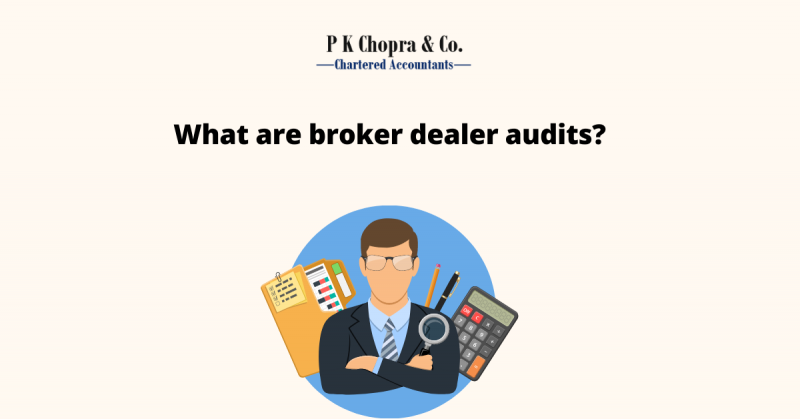What are broker-dealer audits?
Broker
A broker is a person who is in the business of executing securities transactions on behalf of other people’s accounts. Investment advisors, independent contractors, financial consultants, and placement agencies hire him as an agent.
Dealer
A dealer is a person who buys and sells assets for his own account. He performs the role of a principal. The broker-dealer industry’s new rules and regulations have created a complicated compliance environment.
Points
- The Securities and Exchange Commission oversees all broker-dealers in the United States under the Securities Exchange Act of 1934. (SEC).
- The Financial Industry Regulatory Authority (FINRA), a self-regulatory organisation, must approve and register every broker that offers securities to the general public.
- Securities Investor Protection Corporation membership is required of all SEC-registered brokers and dealers.
Every registered broker-dealer is required to file an annual report under the Securities and Exchange Act of 1934 (SEA). Members must file annual reports with FINRA, the SEC, and SIPC (If applicable).
Broker-dealers are obliged to include their financial statements and supporting schedules in their annual reports to the SEC, as well as audit reports prepared by PCAOB-registered public accounting firms.
Broker-dealers must also submit compliance or exemption reports, as well as inspection or review reports generated by the same businesses that produced the audit reports. The audits, exams, and reviews must adhere to PCAOB guidelines.
Due Date
The annual broker-dealer audit must be filed no later than 60 days following the end of the fiscal year. As a result, for the fiscal year ending December 31, the annual audit is due to regulators on or before March 1st.
For broker-dealer audits, there are a few crucial compliances to track and review:
- Focus reports
Rule 17a-5 requires every broker-dealer to prepare a net capital computation within 17 business days of the month/quarter end. The FOCUS report includes a balance sheet, equity reconciliation, income statement, and net capital computation, among other things. - Form BR/BD
To register a broker-dealer firm with the SEC, other self-regulatory organisations and jurisdictions must file Form BD. In order to register its branch office, it must file with BR. - Form U4/U5
Registered representatives (RR) are required by Form U4/U5 BD businesses to act as representatives for customers trading securities or financial products. They could also work as brokers, financial counsellors, or portfolio managers. The Uniform Application for Broker-Dealer Registration, or FINRA Form U4, is used to register new individuals and to re-register current licenced individuals under a new employment. The universal termination notification for securities industry registration, or FINRA Form U5, is used to update or terminate an individual’s registration. - Audits for anti-money laundering
FINRA conducts annual independent evaluations of the firm’s anti-money laundering programme to verify that suspicious behaviour is detected and reported. It also analyses whether the rules, processes, and practises are properly constructed to meet with current government criteria. - SIPC-6 and SIPC 7
SIPC-6 is a General Assessment Payment Form that is filed for the first half of the fiscal year. The completed form and any assessment owed are due 30 days after the period covered, plus a 15 day grace period. SIPC-7 is a General Assessment Reconciliation Form to be filed at the end of the fiscal year, less any assessment paid with the SIPC-6. The whole form is due 60 days after the fiscal year-end plus a 15 day grace period with any additional assessment owed.
If you have any questions or wish to know more about broker-dealers, kindly contact us.

